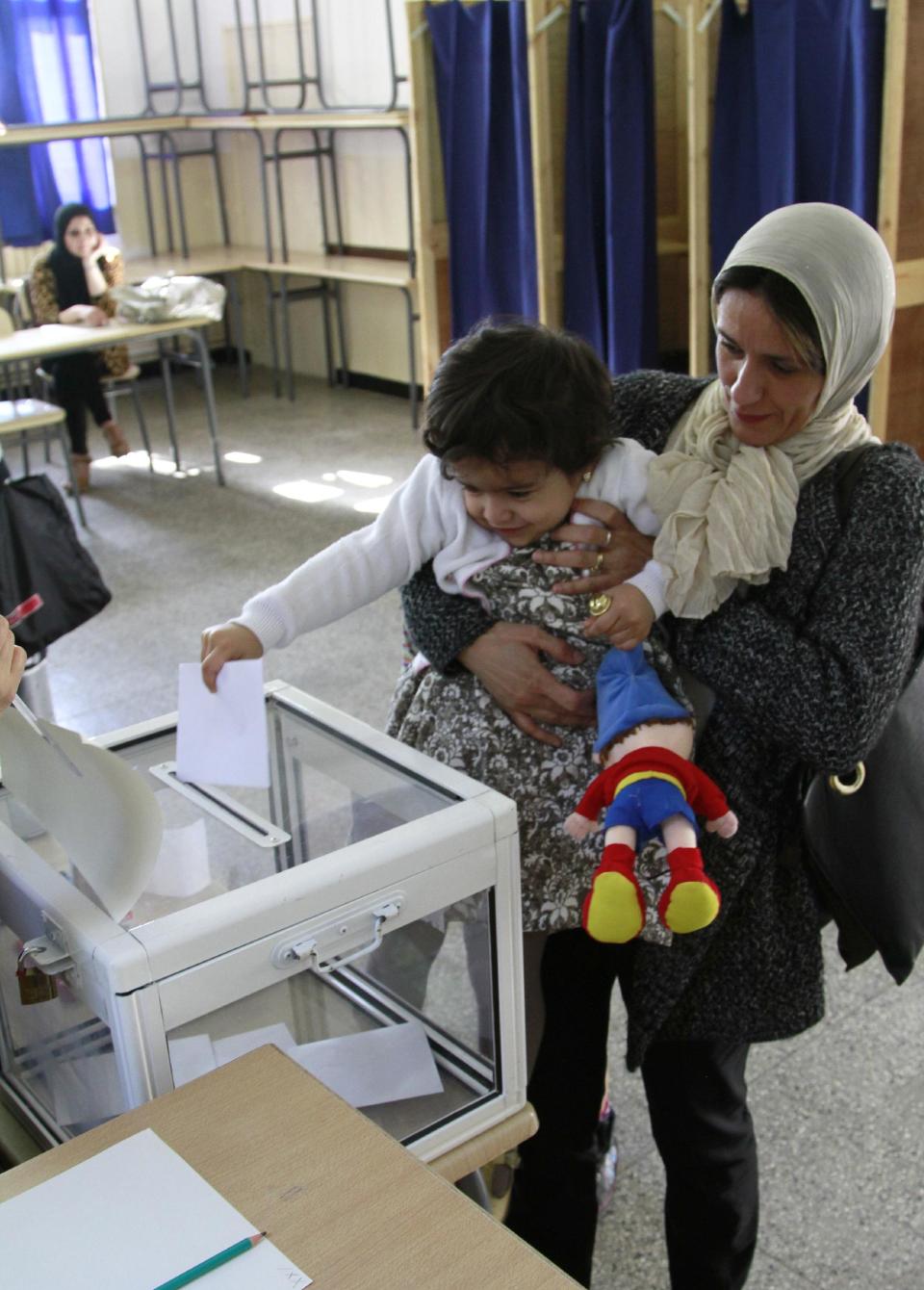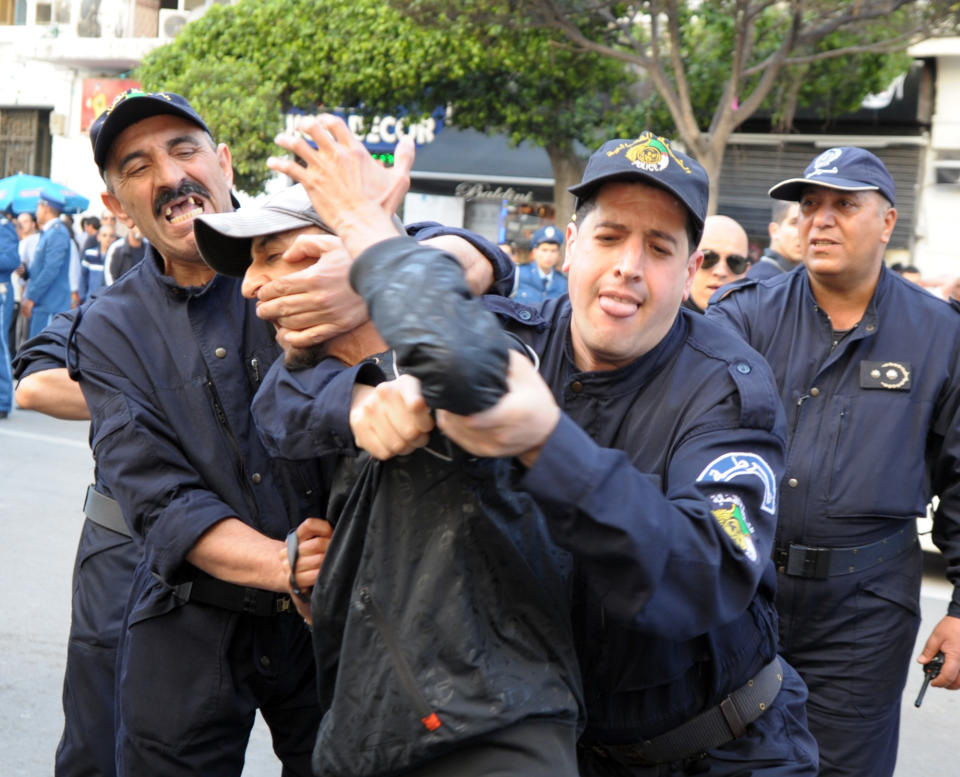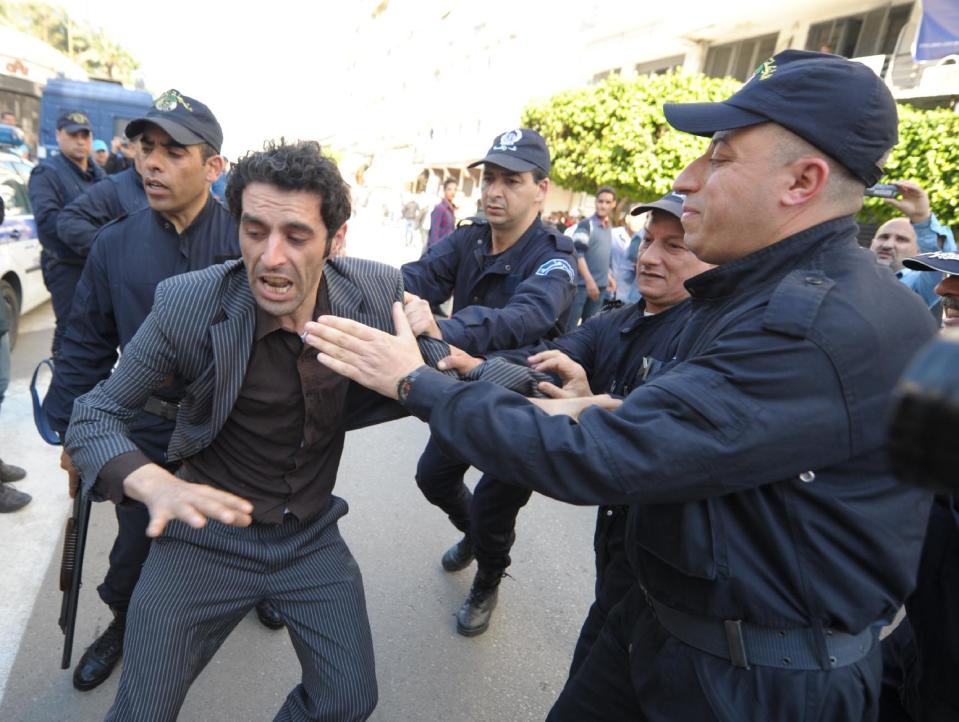Algeria's ailing president votes from wheelchair
ALGIERS, Algeria (AP) — Algeria's ailing president was wheeled to the voting booth on Thursday to cast his ballot for his fourth term in an election he is expected to dominate as the few Algerians that do bother going to the polls will most likely choose stability over change.
Scattered clashes erupted in a few towns around the country as young men attacked some polling stations, however, hinting at some degree of dissatisfaction over President Abdelaziz Bouteflika's continued rule.
Bouteflika voted in front of state media at an Algiers polling station. It was his first public appearance since May 2012 and follows his complete absence from an election campaign that was entirely about his record 15 years ruling this oil-rich U.S. ally in the war against terror.
The president is still recovering from a stroke he suffered last year that left him with speaking and mobility difficulties, but he retains some popularity for a population traumatized by war.
Turnout throughout the day in the sundrenched Algerian capital appeared to be fairly light with older people voting in numbers and the young — who make up a majority of the population — staying away. Three hours before polls closed, the government reported a nationwide turnout of 37 percent.
Despite a vigorous campaign waged by chief opposition candidate Ali Benflis, the president should still win with a comfortable margin as Algerians interviewed at polling stations appeared to respond to his campaign's message that he is still the only man able to ensure stability.
Memories of the brutal struggle against radical Islamists in the 1990s that claimed 200,000 lives are still fresh in many people's memory and for them Bouteflika has been synonymous with a return to peace.
"Young people don't vote, but people my age vote because they remember the dark times and they know what's important," said Nabil Damous, a 41 year-old man voting in the immense Abdel Kader high school, formerly a convent, on the edge of the low-income Bab el-Oued neighborhood. "People who don't vote don't want this country to move forward."
Sonia Izem, a middle-aged woman in a dark headscarf, said she was voting for Bouteflika because she, too, remembered when Bab el-Oued was a battleground between security forces and Islamists and because she felt the rampant corruption in the country would be less during the fourth term.
"The people around him have already stolen a lot and they have nearly filled their sack and they won't need to steal very much in the next term," she said as she entered the nearly empty school around midday. "If we bring in someone new, they will have to start stealing all over again."
Yet while Algeria escaped the pro-democracy uprisings of the Arab Spring, frustrated youth stage thousands of small demonstrations every year over the lack of jobs, opportunities and housing.
In several cities around the country, young people clashed with police after attempting to destroy ballot boxes. The most serious of the clashes was near the city of Bouira, 100 kilometers (60 miles) southeast of Algiers, in which 44 policemen and numerous demonstrators were injured.
Thanks to high oil prices over the last decade, dissatisfaction has been traditionally addressed by spending the country's impressive oil wealth but resources are dwindling and soon the government may have to pursue a different approach to meet the people's needs.
The government said 186,000 police were mobilized to protect the polls and there was a heavy security presence in Algiers on Thursday. A few small demonstrations by those calling for a boycott of the vote were quickly dispersed.
Benflis, the main opposition candidate, has warned against fraud in the election and said that he and his supporters will not remain silent, but has stopped short of calling for demonstrations.








